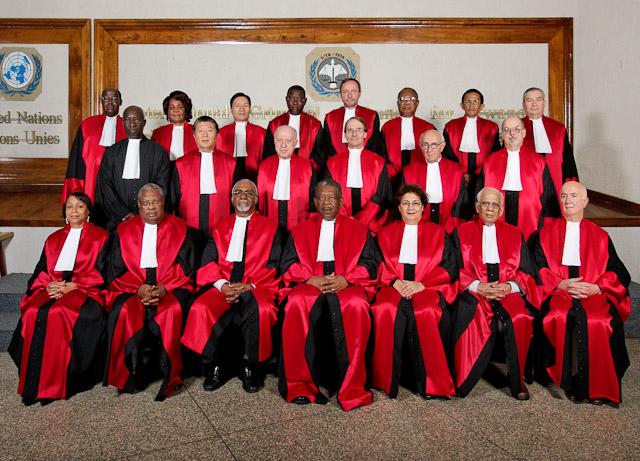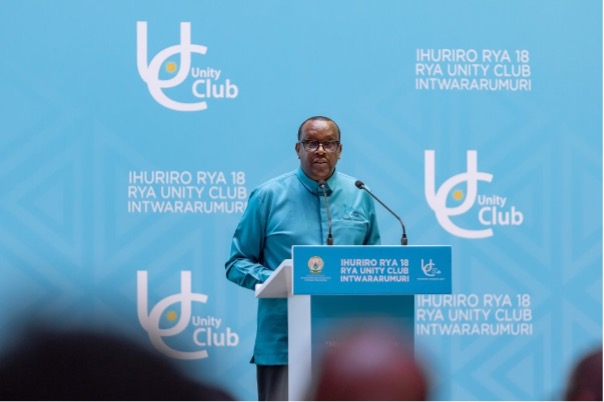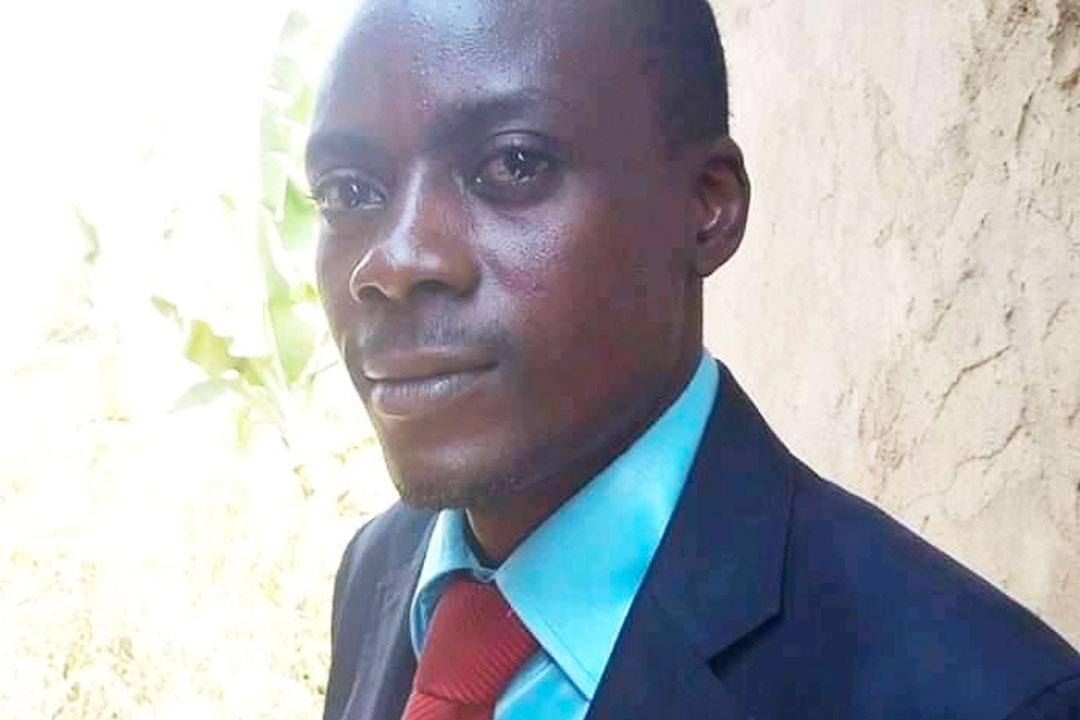December 14, 2015 marked the end of the judicial activity of the United Nations’ International Criminal Tribunal for Rwanda (ICTR) as its Chamber delivered its last judgment. Prior to the closure of the Tribunal, Jambonews travelled to its headquarters in Arusha for an in-depth interview evaluating the work of the ICTR since its establishment in 1995. Our reporters spoke with the President of the Tribunal, Judge Vagn Joensen, on the successes and challenges faced by the ICTR. This is part II of the interview. Click here to read part I
Jambonews: Coming back to the question of independency, you talked about the case of Jean Uwikindi who was sent to Rwanda. Are you suggesting that he can have a fair trial when one considers that after Emmanuel Bagambiki was acquitted by the ICTR, he also had to face Rwandan authorities? Can we say that Rwanda respected the decision made by the ICTR in that case?
Vagn Joensen: We decided that on the face of it, Rwanda has now a legal system that meets all international standards. Similarly, when you refer a case to France, or to my country Denmark and so on, the jurisprudence shows that the judges interpret the law accordingly (..) So that is why when we refer a case to another jurisdiction, we set the condition for the refill that we will monitor the proceedings and we will revoke the case if we find that fair trial principles are not being applied.
Jambonews: In 20 years of work, the ICTR sentenced many and acquitted others, sometimes after nearly fifteen years in prison. How do you explain that no compensation mechanism or rehabilitation has been planned in the ICTR statute?
Vagn Joensen: The ICTR judges are of the opinion that there should be one and we requested the UN Security Council during the presidency of Navi Pillay, who is now the Human Rights High Commissioner, to set up a compensation scheme. But they did not listen to us. So we have only compensated where rights, according to our statutory statute, have been violated. Being indicted where there is primer evidence is not a violation of anything, although in many countries you do have a compensation system where, unless you yourself have delayed a case or somehow have tried to destroy or interfere with evidence, you get a rather high minimum compensation. Also, if your losses are higher, then you are compensated for those as well. I come from a system which is very legal to compensation and it is the state that pays.
However, running an international tribunal is extremely expensive. You know our running cost comes from the general budget for peacekeeping and maintenance of peace, so I assumed that in New York they decided they had spent enough on these 2 tribunals so they will not expend our funding. It is outside our control, we do not have the powers to order to compassion. One accused has sued us for compensation. Zigiranyirazo also went to the appeal chamber and they ruled that his statutory rights had not been violated. There is no compensation within the statute we have now.
Jambonews: Regarding those who have been acquitted, how do you explain that some states cooperate with the ICTR when they have to arrest people but there is no cooperation when they are asked to become a host country?
Vagn Joensen: The powers of the Security Council are limited by the chart of the United Nations. The ICTR and ICTY have been created following chapter 7 of the UN charter which states that the Security Council can impose measures on states, meaning without their consent, with a view to maintain or create peace and stability internationally. The prosecution of international crimes is considered when something threatens international peace and security, so in those cases you can impose on states to collaborate with us in prosecution. Once the prosecution has been completed because there is a final judgment, there is no longer any obligation to collaborate with us. We have tried to interpret the provision largely at the trial level and demand that every state should be compelled to receive the person back to the country where the accused was arrested. They should be obliged to reinstall him in the position he was when he was arrested. We issued that decision to that effect in Zigiranyirazo’s case but he did not want to go back to Cameroon although the Cameroonian government seemed to be willing to consider it (..).
We can only appeal to states to cooperate with us on a voluntary basis and out of the 14 acquittals we have, two cases have been relocated to France and one to Belgium. Belgium has also recently accepted one who was actually convicted after serving his sentence. Italy has taken one who was a catholic priest and Switzerland has taken another. We have done whatever we can to assist acquitted and released individuals. We bring up the issue with the Security Council and General Assembly every time we go there, that is 3 times a year. Everybody declares that they agree with us in principles, but then when we knock on the doors of the mission they tell us to go to the capitals and see the Ministry of Foreign Affairs or Immigration Authorities.
France and Belgium, favorite countries for the acquitted because their families are often staying there with whom they want to be reunited, only accept two persons at a time and we cannot force them for more. So we try to at least get them inside the Schengen area so they can cross the borders freely and maintain contact with their families. However, other countries like Denmark then said: “Why in Denmark? Why should they come to Denmark? Do they have wife and kids here?” I mean, everybody pushes it off to somebody else. We are also trying Africa, but you know in east Africa with the east African community where Rwanda is a very prominent member, they are afraid it could somehow have an impact on their relations with Rwanda. Other countries also have similar concerns. So it is very difficult, but in principle they could go back to Rwanda and Rwanda guarantees that they can be safe and get their property back and everything. But they do not feel safe going back to Rwanda, and of course their primary concern is to be reunited with their families that are not in Rwanda but in France, Belgium and Canada as well.
Jambonews: It seemed the Rwandan government was not happy when they were released?
Vagn Joensen: That is part of the background of their fear of going back to Rwanda, they do not feel welcome in a place where people publicly state that their release is “a scandal’’ because ‘’guilty people are now acquitted’’. It is not very conducive for their return to Rwanda that the government of Rwanda condemns our acquittals, but we understand this is an emotional issue for Rwanda. I mean, the Rwandan genocide was the most horrible thing that has ever happened. Well, I do not know what has happened across the world since Adam and Eve, but certainly in my time, it is the worst thing that ever happened, at least when speaking about human made disasters.
Jambonews: The Tutsi genocide that took place from April to July 1994 is part of a larger drama that started on the October 1st, 1990 and was later extended to the Democratic Republic of the Congo. The High Commissioner for Human Rights of the United Nations published the UN mapping report in 2010 about the serious violations of international humanitarian law that occurred in the DRC over the decade of 1993-2003. Among other crimes, they said that there has been extermination of Hutu refugees which could, if proven before a competent court, be qualified as genocide. Do you think that those Hutu and Congolese victims identified by the mapping report deserve justice? If yes, what kind of mechanism would be deemed appropriate in terms of a tribunal?
Vagn Joensen: The mandate of the ICTR is very precise. It concerns what happened in 1994 in Rwanda, so what happened after 1994 and what happened outside Rwanda’s borders is outside our jurisdiction. So this has nothing to do with the ICTR.
If you ask me as a lawyer or someone dealing in international law, then of course I’m in favor of crimes being investigated and being prosecuted. I think there is limited room for international courts because they are so expensive and so time consuming to operate. We have to reserve that kind of expenditure to the sort of highest type of criminality that also have an impact on whole regions and peace and security etc. The main task would be to empower domestic jurisdiction to handle these cases. Of course, there is a problem when domestic jurisdiction are not willing to do it because of political concerns.
With the ICC, we have a flexible system of course. Primarily, ICC deals with cases against individuals from state parties and Congo is not a state party to the ICC. However, the Security Council has the authority to refer a case to the ICC against individuals from non state parties if the case has sort of affected peace and security in a region. The Security Council is not able to act because of conflicting interests of the permanent members.
In principle, the regional body can step in. In Africa that is the African union. As you know, the African union has decided to set up a criminal branch of the African court of human and people’s rights and give it whatever jurisdiction they find appropriate. But, I will be careful about telling Africans what to do, it is so expensive to run international courts and those countries who obviously contribute to legal development in African countries are committed to the ICC. Many see an African court as sort of competitor to the ICC because it was promoted by Kenya in connection with the Kenyatta case. But once those cases are out of the ICC, then I think it would be possible to look at it more objectively, because it is in everybody’s interest that the judicial system becomes as effective as possible.
These atrocity crimes have a spillover effect on other countries. It is not only for one country to decide whether or not to do something about it. So as I see it, we should have domestic courts to deal with what domestic courts can and maybe original courts to handle what they cannot. What is not possible for the original court, can be handed over to the ICC to do the rest. But there will always be something left, especially because the ICC is trial based and many countries do not want to join it, including the USA, China and Russia. They can block refers to the ICC in the Security Council if it is against their geopolitical interest.
Interview by Ruhumuza Mbonyumutwa and Honorine Sebatware





